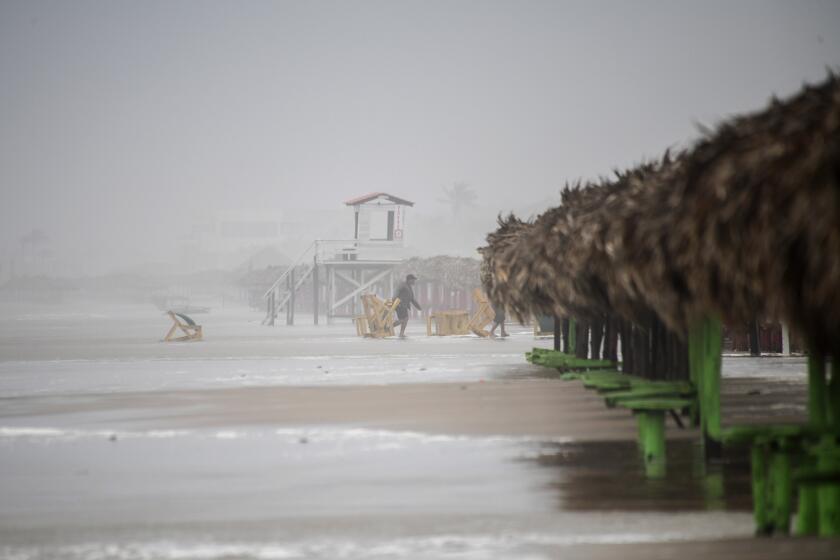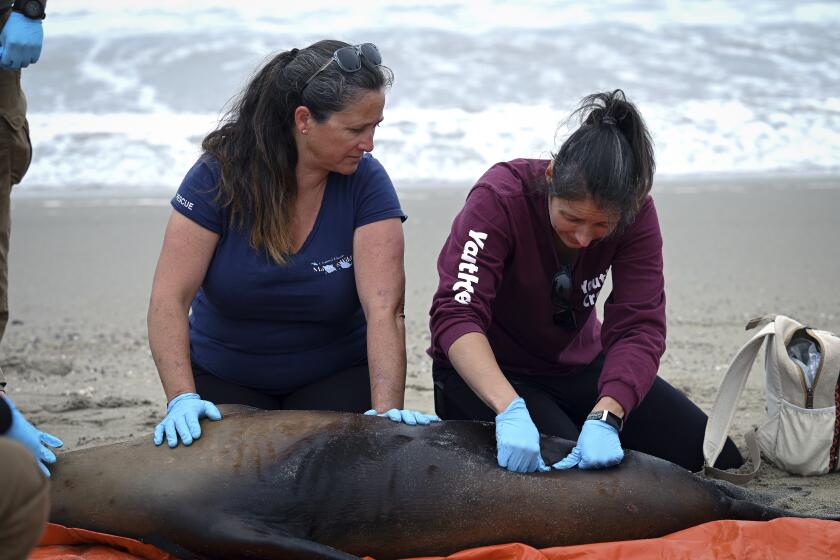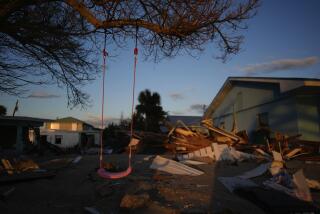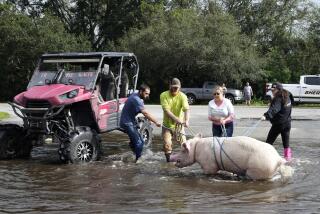Tropical Storm Debby expected to make landfall in Florida as hurricane
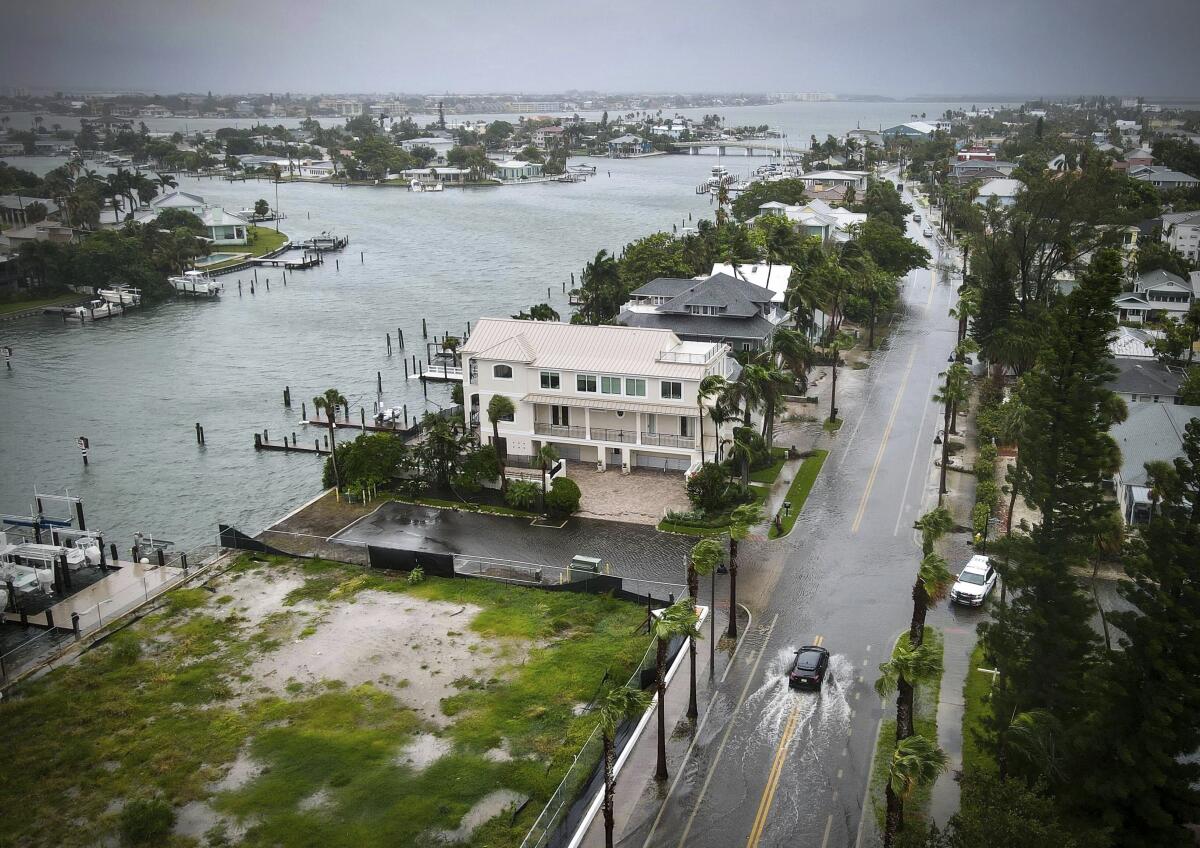
MIAMI — Tropical Storm Debby was strengthening rapidly Sunday and expected to become a hurricane as it churned through the Gulf of Mexico toward Florida, bringing with it the threat of devastating floods to the southeast Atlantic Coast later in the week.
The storm was likely to become a Category 1 hurricane before making landfall Monday in the Big Bend region of Florida, the National Hurricane Center in Miami said.
From there, Debby was expected to move eastward over northern Florida and then stall over the coastal regions of Georgia and South Carolina, bringing the potential for a “historic rainfall event and potentially catastrophic flooding” that could begin early Tuesday and last through Friday, according to Dwight Koehn, a National Weather Service meteorologist in Charleston, S.C. Rains could total up to 30 inches, officials said.
They also warned of life-threatening storm surge along Florida’s Gulf Coast, with 6 to 10 feet of inundation expected Monday between the Ochlockonee and Suwannee rivers.
The flooding impacts could be especially severe in low-lying areas near the coast, including the Georgia city of Savannah, and Hilton Head and Charleston in South Carolina.
Officials in Savannah said the area could see a month’s worth of rain in four days if the system stalls over the region.
“This is going to a significant storm. The word historic cannot be underscored here,” Savannah Mayor Van R. Johnson said during a news conference.
The hurricane center said in an evening update that Debby was located about 120 miles west of Tampa, with maximum sustained winds of 65 mph. The storm was moving north at 12 mph.
Debby’s outer bands were already flooding streets and bringing power outages on Florida’s west coast Sunday evening. Sarasota County officials said most roadways on Siesta Key, a barrier island off the coast of Sarasota, were under water. The hurricane center predicted the system would strengthen as it curved off the southwest Florida coast, where the water has been extremely warm.
At a briefing Sunday afternoon, Florida Gov. Ron DeSantis warned that the storm could lead to “really, really significant flooding that will happen in North Central Florida.”
Debby, Oscar, Tony: What’s in a storm’s name? How does a tropical storm or hurricane get its moniker? Will yours come up on the forecasters’ list?
Debby is the fourth named storm of the 2024 Atlantic hurricane season after Tropical Storm Alberto, Hurricane Beryl and Tropical Storm Chris, all of which formed in June.
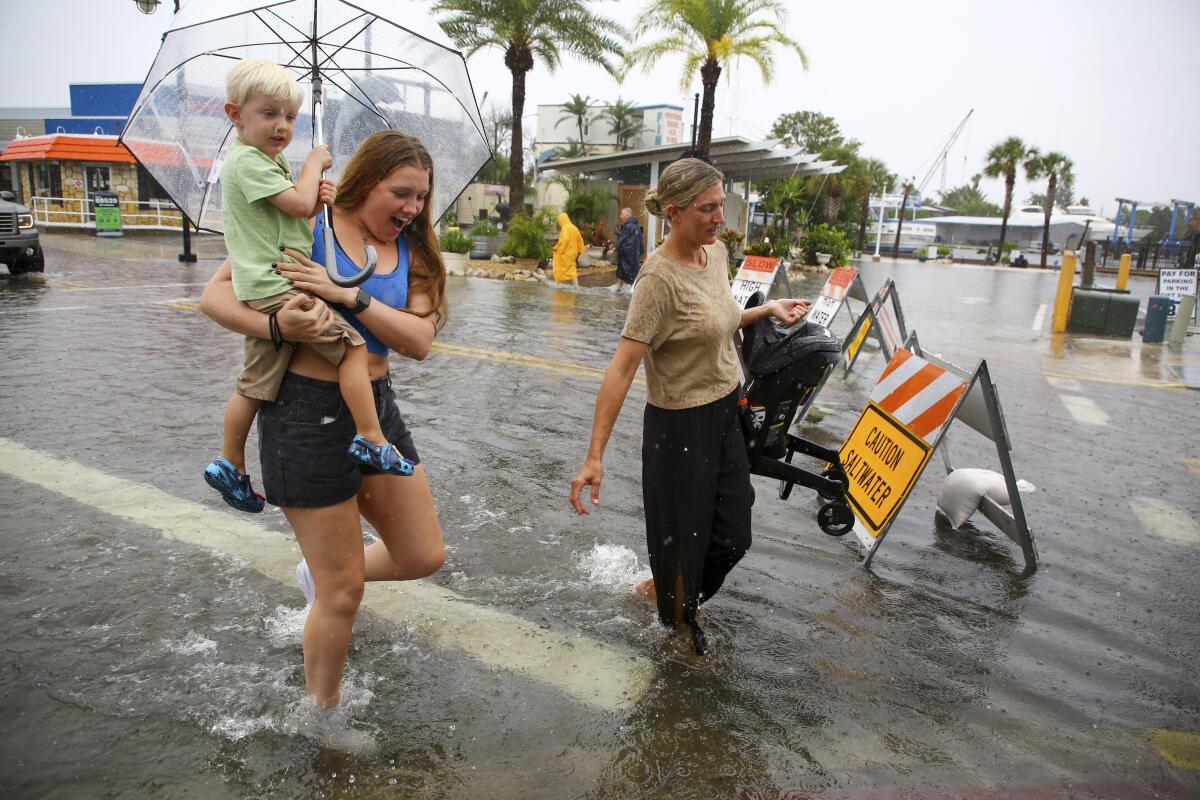
A hurricane warning was issued for parts of the Big Bend and the Florida Panhandle, while tropical storm warnings were posted for Florida’s West Coast, the southern Florida Keys and Dry Tortugas. A tropical storm watch extended farther west into the Panhandle. A warning means storm conditions are expected within 36 hours, while a watch means they are possible within 48 hours.
Storm surge expected to hit Gulf Coast, including Tampa Bay
Flat Florida is prone to flooding even on sunny days, and the storm was predicted to bring a surge of 2 to 4 feet along most of the Gulf Coast, including Tampa Bay, with a storm tide of up to 7 feet north of there in the sparsely populated Big Bend region.
Forecasters warned of “a danger of life-threatening storm surge inundation” in a region that includes Hernando Beach, Crystal River, Steinhatchee and Cedar Key. Officials in Citrus and Levy counties ordered a mandatory evacuation of coastal areas, while those in Hernando, Manatee, Pasco and Taylor counties called for voluntary evacuations. Shelters opened in those and some other counties.
Flood preparations underway
Residents in Steinhatchee, Fla., which flooded last year during Hurricane Idalia, spent Sunday moving items to higher ground.
“I’ve been here 29 years. This isn’t the first time I’ve done it. Do you get used to it? No,” Mark Reblin said as he moved items out of the liquor store he owns.
In Summerville, S.C., the Dorchester Paws animal shelter announced an emergency evacuation of more than 300 dogs and cats, calling on volunteers to take in the animals.
Employees of Savannah Canoe and Kayak in Georgia said they were busy tying down their watercrafts, laying sandbags, and raising equipment off the ground. Mayme Bouy, the store manager, said she wasn’t too concerned about the forecast calling for a potential historic rain event.
“But we do have some high tides this week so if the rain is happening around then, that could be bad,” Bouy added. “I’d rather play it safe than sorry.”
DeSantis declared a state of emergency for 61 of Florida’s 67 counties, with the National Guard activating 3,000 guard members. Georgia Gov. Brian Kemp made his own emergency proclamation on Saturday and South Carolina Gov. Henry McMaster declared a state of emergency that enables state agencies to coordinate resources in preparation.
The White House said federal and Florida officials were in touch and FEMA “pre-positioned” resources including water and food.
In Tampa alone, officials gave out more than 30,000 sandbags to barricade against flooding.
“We’ve got our stormwater drains cleared out. We’ve got our generators all checked and full. We’re doing everything that we need to be prepared to face a tropical storm,” Tampa Mayor Jane Castor said.
The neurotoxin domoic acid is blamed for the extreme distress and deaths of many sea lions along the Central Coast, as well as the deaths of two dolphins and two seals.
Northeast Coast also preparing for storm conditions
Emergency managers in New England and New York were already monitoring the path of the storm for the possibility of remnants striking their states.
States including New York and Vermont have been hit by heavy rain and thunderstorms in recent weeks and were still coping with flooding and saturated ground. Vermont suffered two separate flooding events in July, and another could bring heavy damage to communities still repairing from earlier floods.
More to Read
Sign up for Essential California
The most important California stories and recommendations in your inbox every morning.
You may occasionally receive promotional content from the Los Angeles Times.
